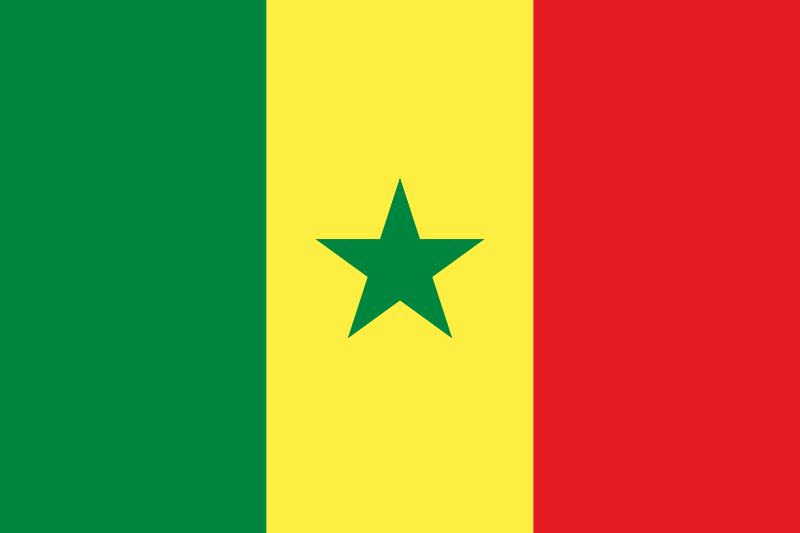
Senegal is bounded to the north and northeast by the Sénégal River, which separates it from Mauritania; to the east by Mali; to the south by Guinea and Guinea-Bissau; and to the west by the Atlantic Ocean. The Cape Verde (Cap Vert) Peninsula is the western most point of the African continent. The Gambia consists of a narrow strip of territory that extends from the coast eastward into Senegal along the Gambia River and isolates the southern Senegalese area of Casamance. Senegal is known as the “Gateway to Africa”, located at the western most point of the continent. It is, with its range of diverse enviroments and rich natural heritage that the country’s national symbols were chosen: the baobab tree and the lion.
The country of Senegal was long a part of the ancient Ghana and Djolof Kingdoms and an important node on trans-Saharan caravan routes. It was also an early point of European contact and was contested by England, France, Portugal, and the Netherlands before ultimately coming under French control in the late 19th Century. It remained a colony of France until 1960, when, under the leadership of the writer and statesman Léopold Senghor.
The Mali federation gained independence on 20 June 1960, as a result of the independence and the transfer of power agreement signed with Soudan, on 4 April 1960. However, due to internal political difficulties, the Federation broke up six days later. Senegal and Soudan (renamed the Republic of Mali) proclaimed independence. Léopold Sédar Senghor, was elected Senegal's first president in August 1960.
Senegal gain its independence from France after breaking away from the Mali Federation, which was formed by merging Senegal and the French Soudan in 1959.
President Senghor and Prime Minister Mamadou Dia governed together under a parliamentary system. In December 1962, Prime Minister Dia attempted to overthrow President Senghor. The attempt failed and Dia was arrested. In 1980, President Senghor retired from politics and handed power in 1981 to his successor Abdou Diouf. Diouf was president from 1981-2000. In the presidential election of 2000, he was defeated in a free and fair election by the opposition leader Abdoulaye Wade. Senegal experienced its second peaceful transition of power, and its first from one political party to another. It was also a move from one party state towards multiparty democracy. Senegal has a long history of participating in international peacekeeping.
The most important city in Senegal is its capital, Dakar. This lively and attractive metropolis, located on Cape Verde Peninsula along the Atlantic shore, is a popular tourist destination. Although the government announced plans to eventually move the capital inland, Dakar will remain one of Africa’s most important harbours and an economic and cultural centre for West Africa as a whole. Although the government announced plans to eventually move the capital inland, Dakar will remain one of Africa’s most important harbours and an economic and cultural centre for West Africa as a whole. It was the site of one of the earliest European settlements in Western Africa and long served as an outpost for slave and other trading.
https://www.afdb.org/en/countries/west-africa/senegal
https://mg.co.za/top-six/2022-05-18-finding-alkebulan-in-africas-best-museums/
https://www.worldhistory.org/Wolof_Empire/
https://www.theguardian.com/world/2009/feb/03/mamadou-dia-obituary-senegal
https://www.presidence.sn/en/presidency/leopold-sedar-senghor
https://www.africanews.com/country/senegal/
http://www.globosapiens.net/subapp_countries/app_data/maps/senegal-map.jpg
https://www.lonelyplanet.com/senegal